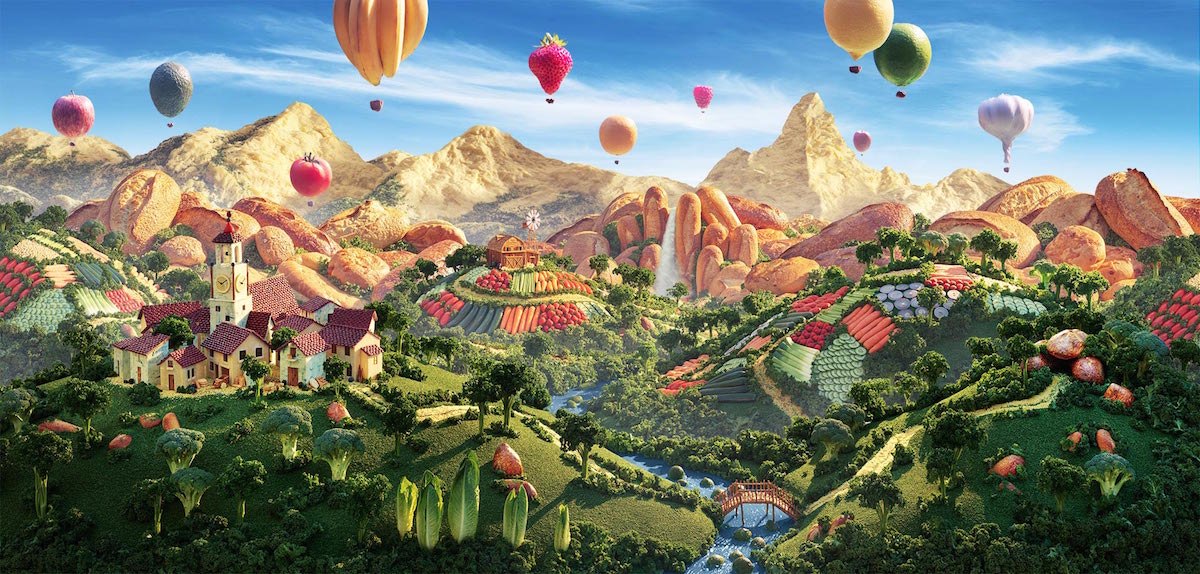
“Food World Vista”
As a child, you might have believed the moon was made of cheese or perhaps dreamt of visiting Willy Wonka’s magical candy world. Although we can’t fly you to the moon or gift you a golden ticket, we can introduce you to the whimsical food art of Carl Warner. The artist uses everyday ingredients to create edible landscapes that look oddly familiar. The series—aptly titled Foodscapes—merges Warner’s boundless imagination with his talent for food photography.
Warner began creating Foodscapes in 1998 when he came across a portobello mushroom in a market. He explains, “[I] held it up to the light and imagined that it was some kind of canopy tree in an alien world. I took it back to my studio and with a handful of beans and rice I created my first Foodscape.” A decade later, Warner has crafted a wealth of landscapes using food and exhibited them all over the world, worked with advertising agencies, and even helped to promote healthy eating.
Each “foodscape” is hand-built in Warner’s London-based studio. The artist first sketches out the composition and then works with a team of model makers and food stylists over two to three days to build each set. In order to capture the ingredients before they wilt under the hot studio lights, each complete image is compiled from separate photos digitally spliced together, from foreground to background. Warner tells My Modern Met, “I tend to draw a very conventional landscape using classic compositional techniques as I need to fool the viewer into thinking it is a real scene at first glance. It is the realization that the scene is in fact made of food that brings a smile to the viewer, and for me that’s the best part.”
When selecting his organic materials, Warner spends a lot of time in grocery stores and food markets around the world. He explains, “There is such an incredible choice of ingredients in terms of shape, texture and colors. My palette is a three dimensional one, which I can choose from around the globe.” In a piece called Pumpkin Paradise, Warner cleverly uses a pumpkin as a little house, and pumpkin seeds as gravel and tree leaves. His Candy Cottage scene sees an entire Hansel and Gretel-like pink landscape made from sweet, edible delights. And a huge Food World Vista envisions baguettes as mountains, broccoli as trees, and colorful vegetables as a patchwork of fields.
You can see more on Warner’s archive on his website.
Carl Warner uses everyday ingredients to create incredible food art landscapes.
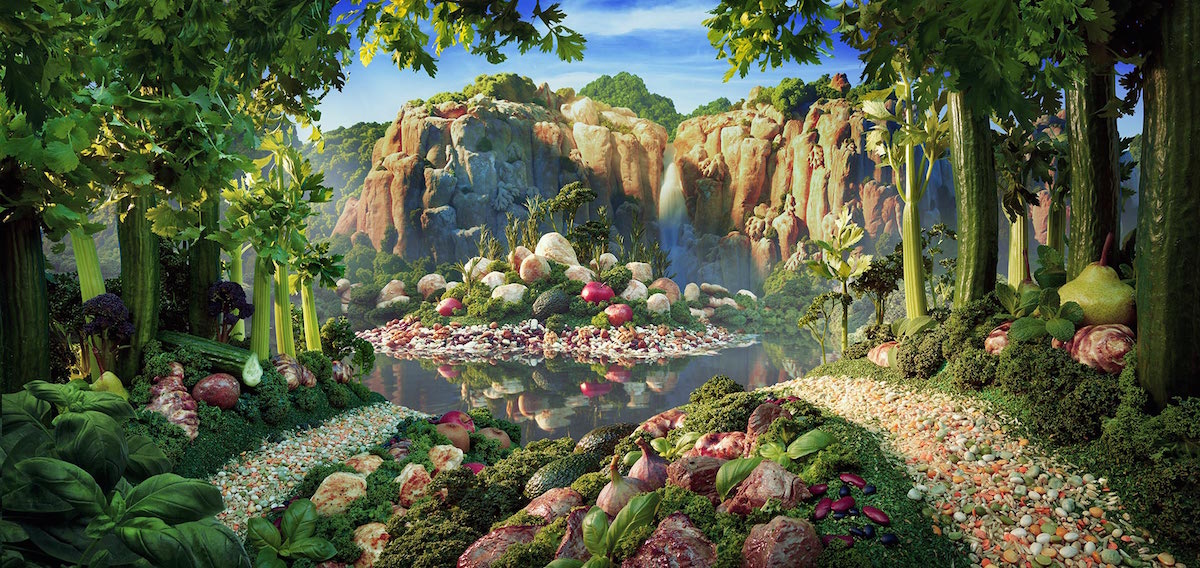
“Fresh Herb Lake and Island”
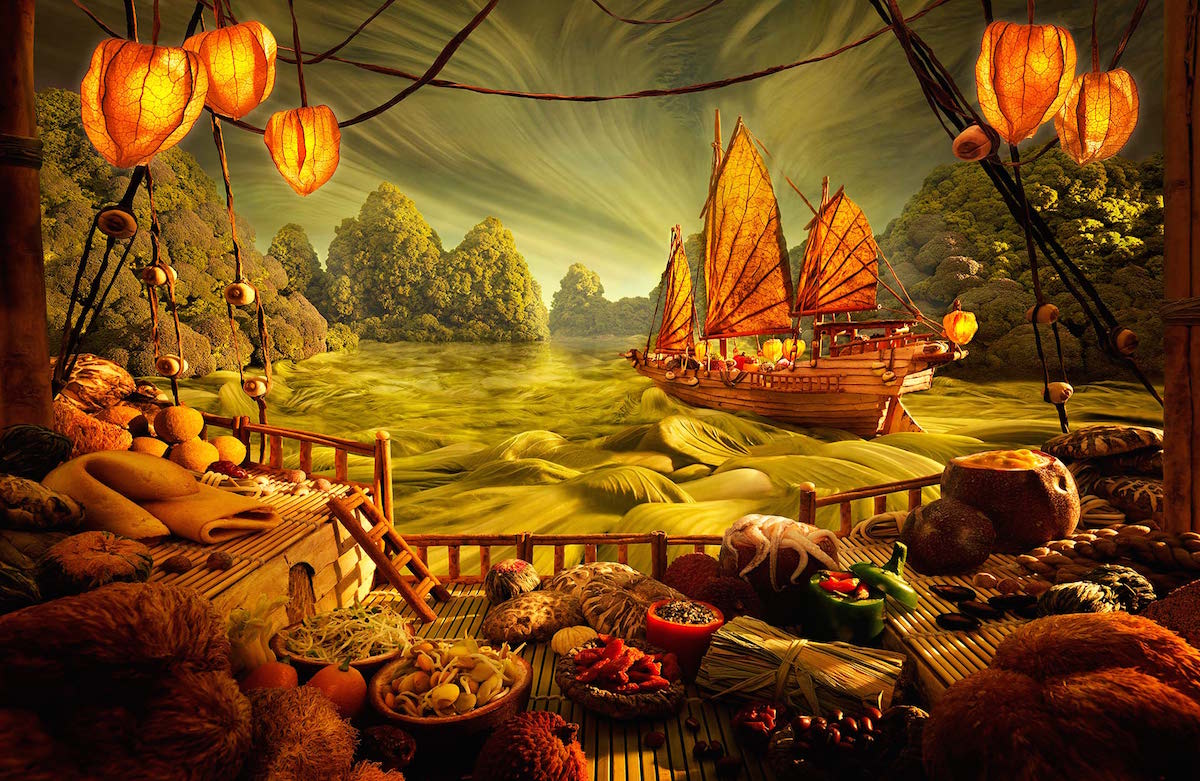
“Chinese Junk”
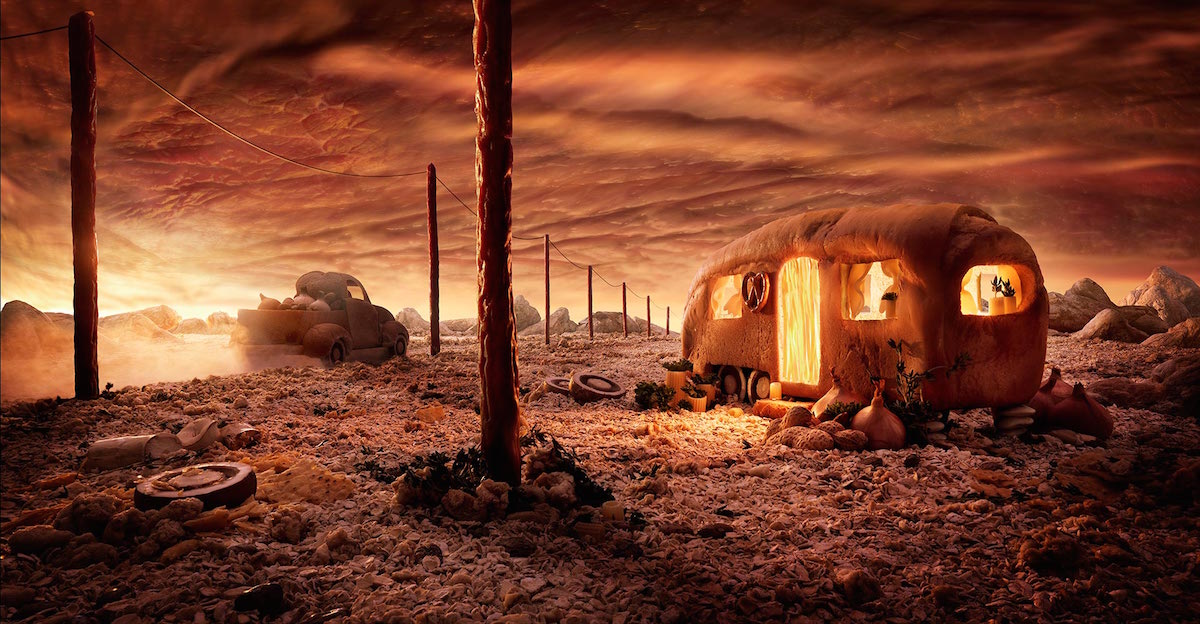
“Cereal Dust Bowl”
The series—aptly titled Foodscapes—merges the artist’s boundless imagination with his talent for food photography.
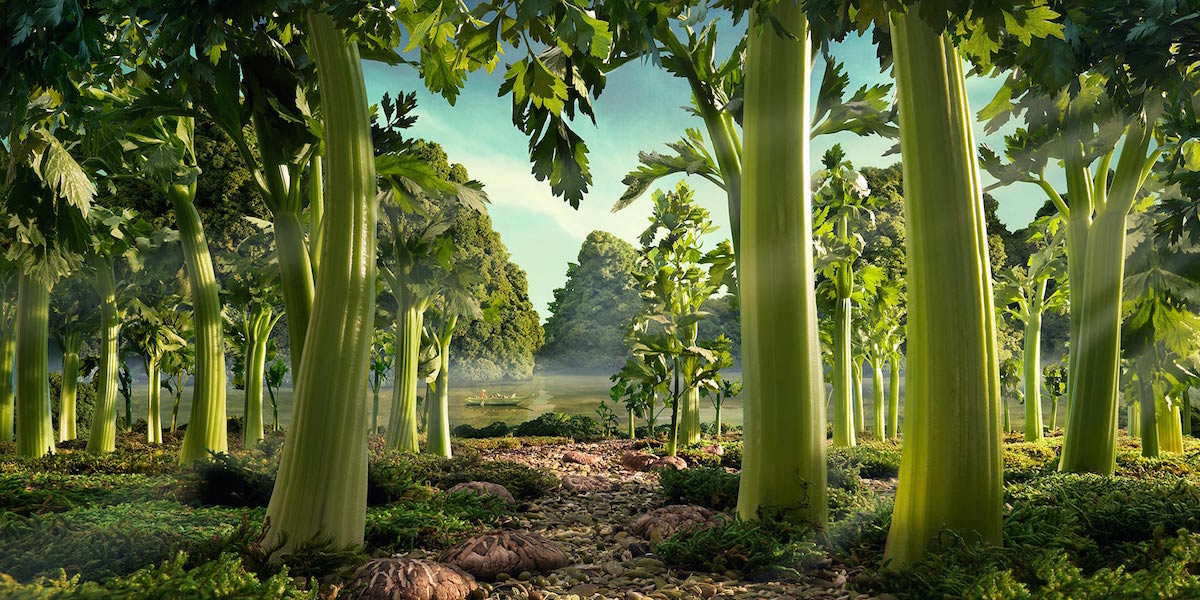
“Celery Forest”
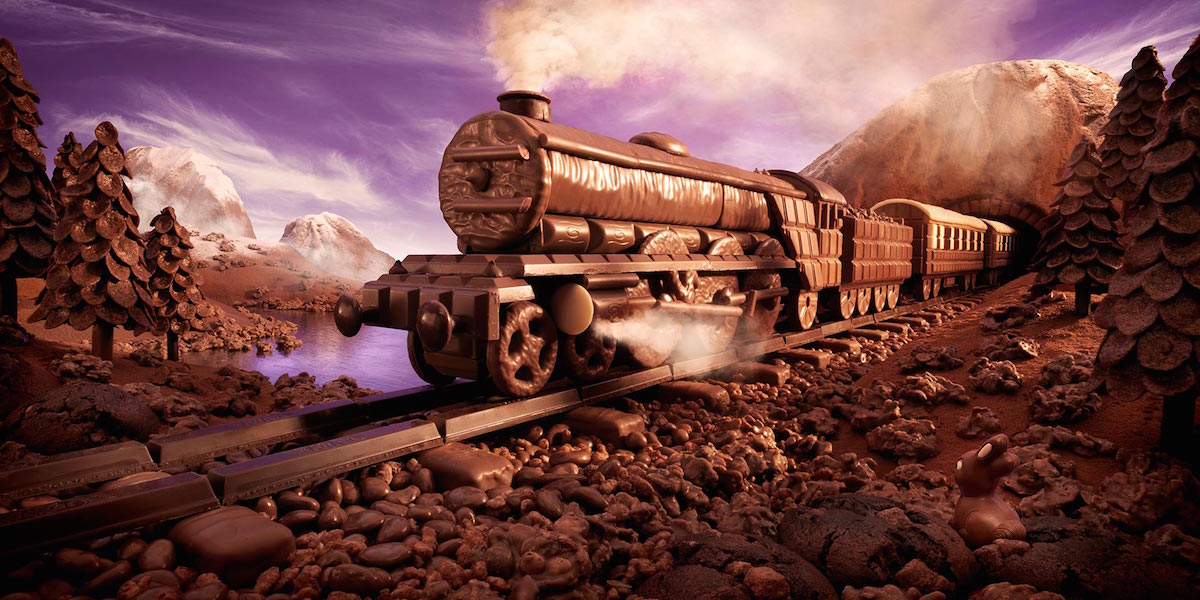
“Chocolate Express”
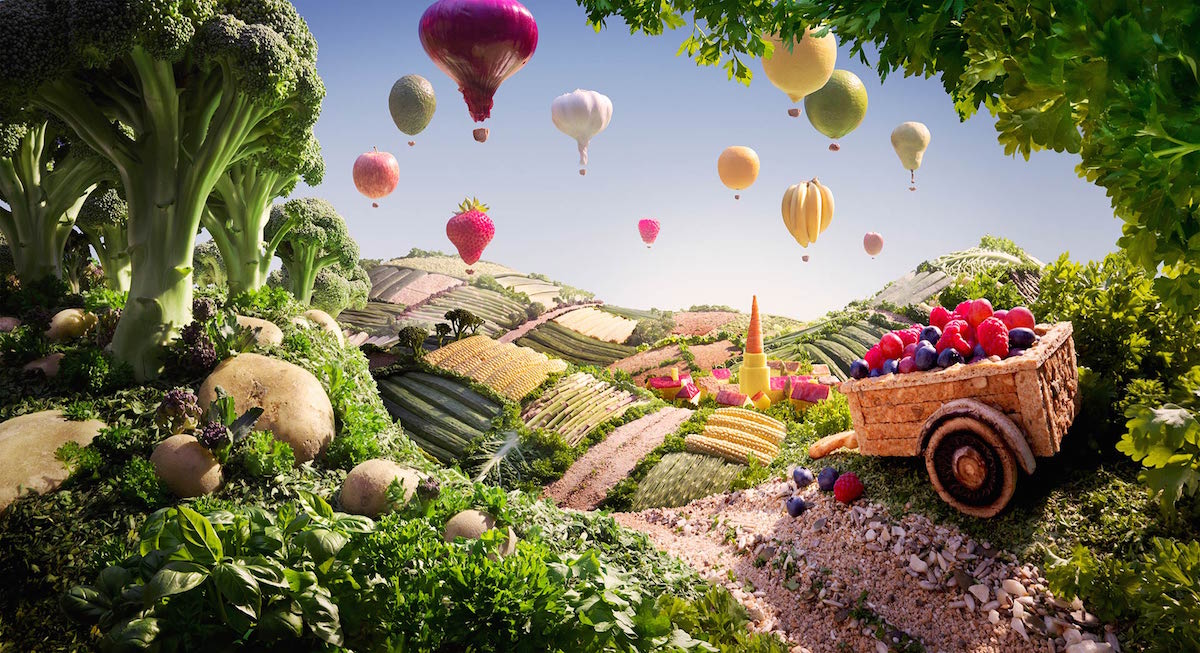
“Cart and Balloons”
Each set is built with the help of a team of food stylists and then photographed in layers.
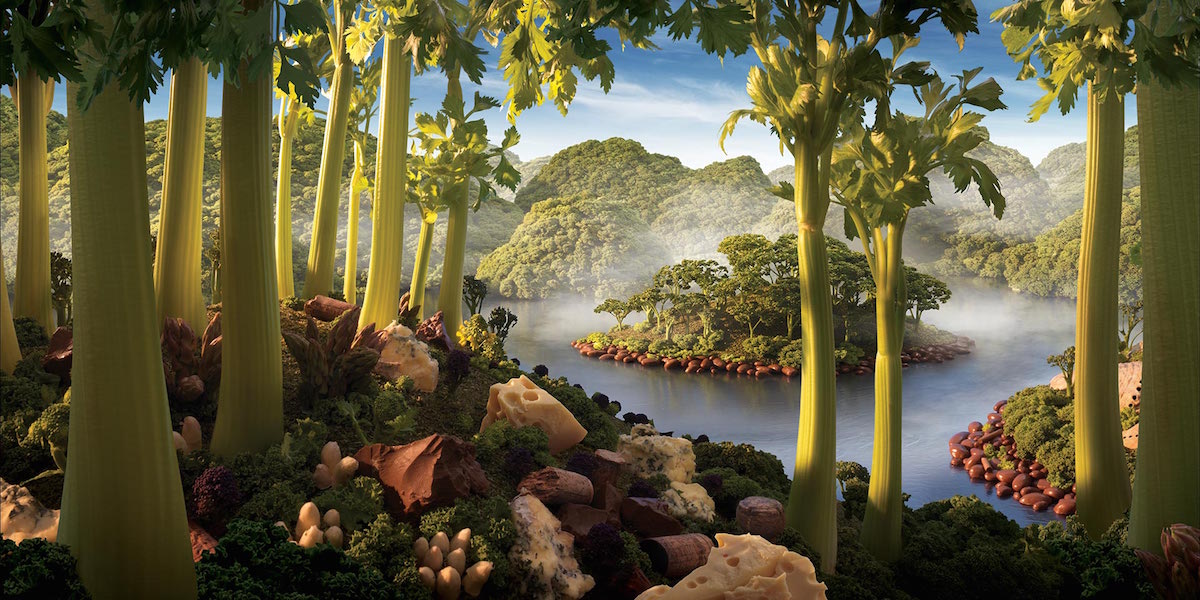
“Celery Island”

“Amazon Canoe”
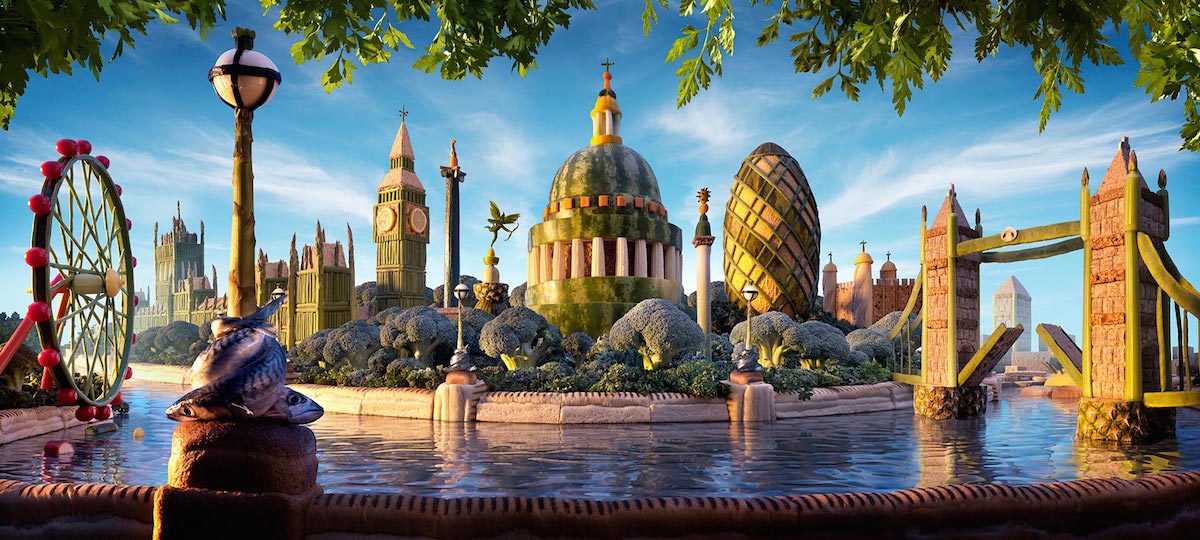
“London Skyline”
Every ingredient is chosen according to it’s texture, shape, and color.
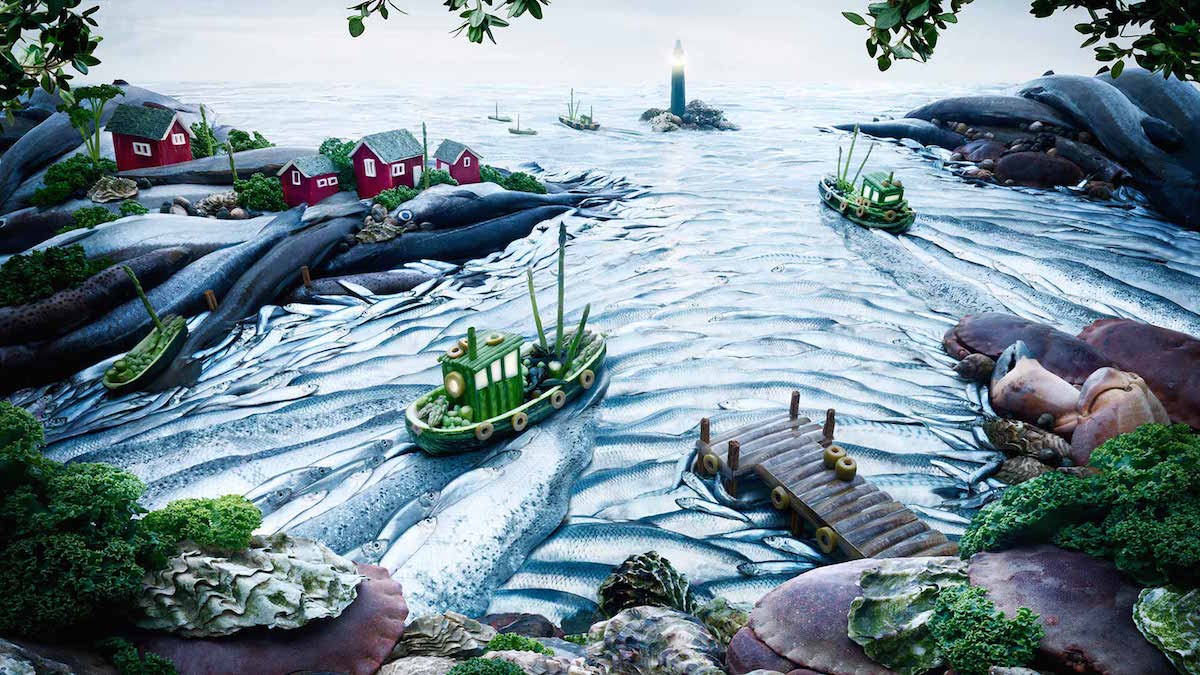
“Fishscape”
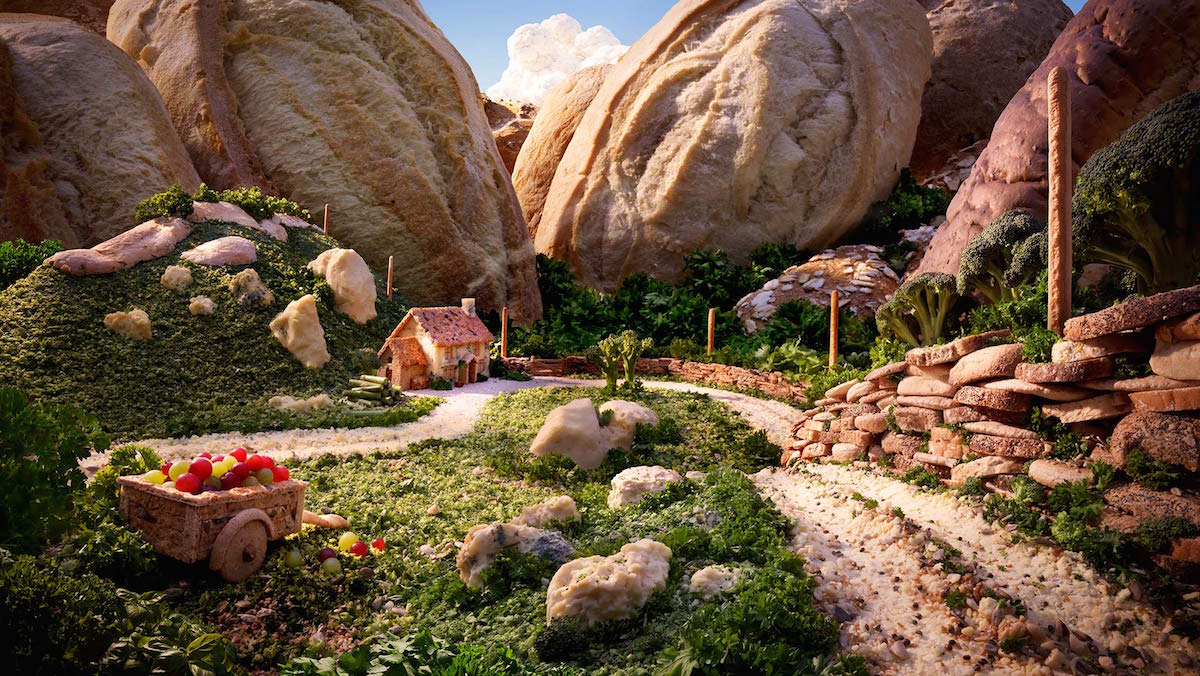
“Breadscape”
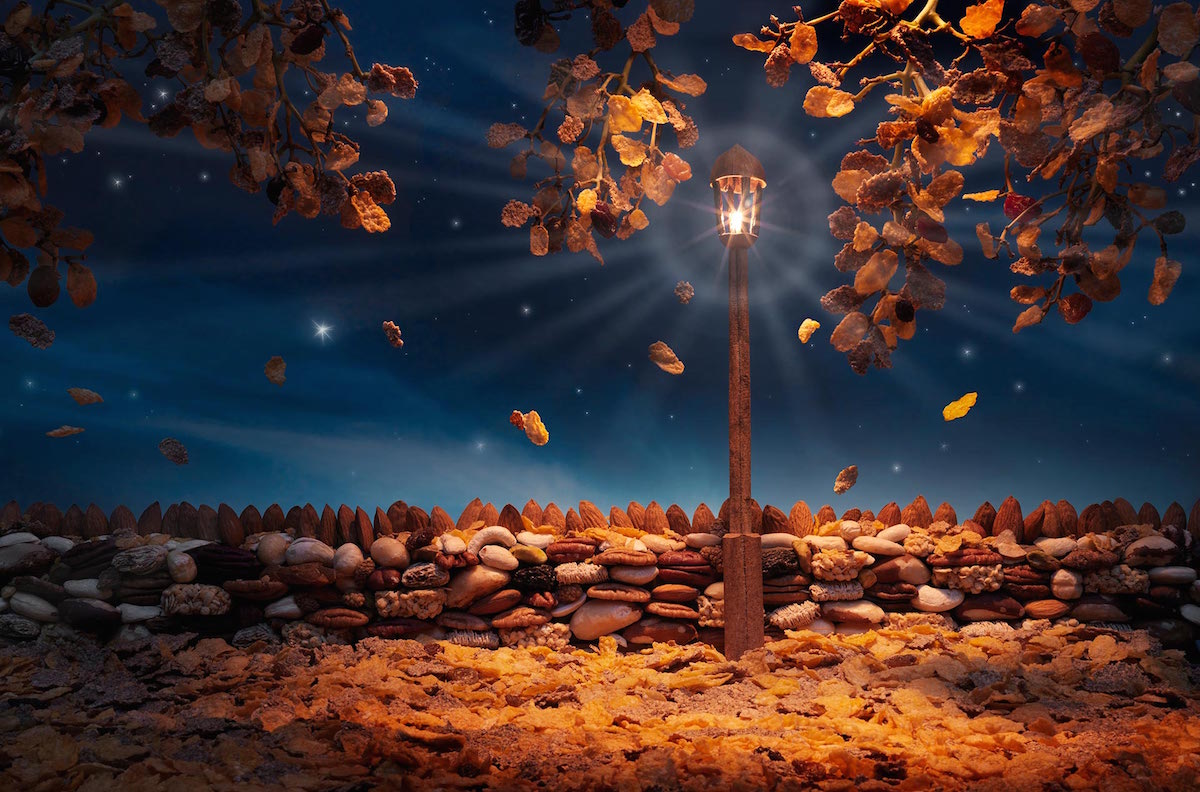
“Autumn Flakes”
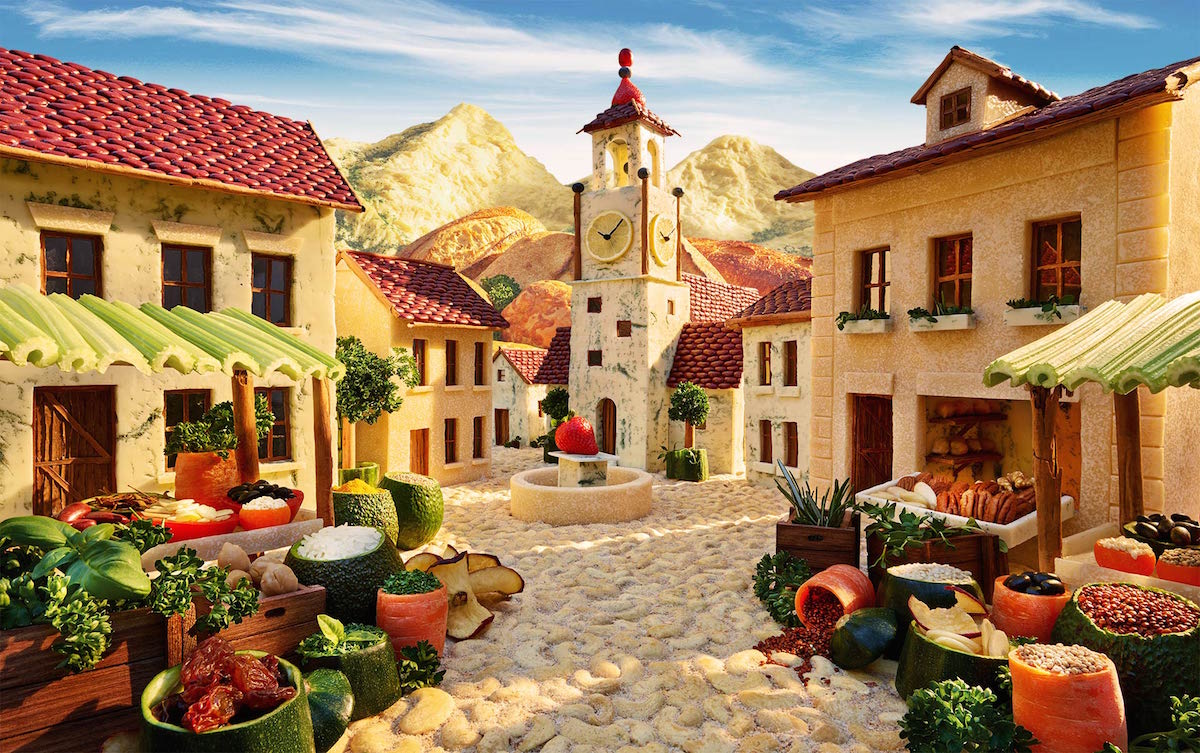
“Food World Town”
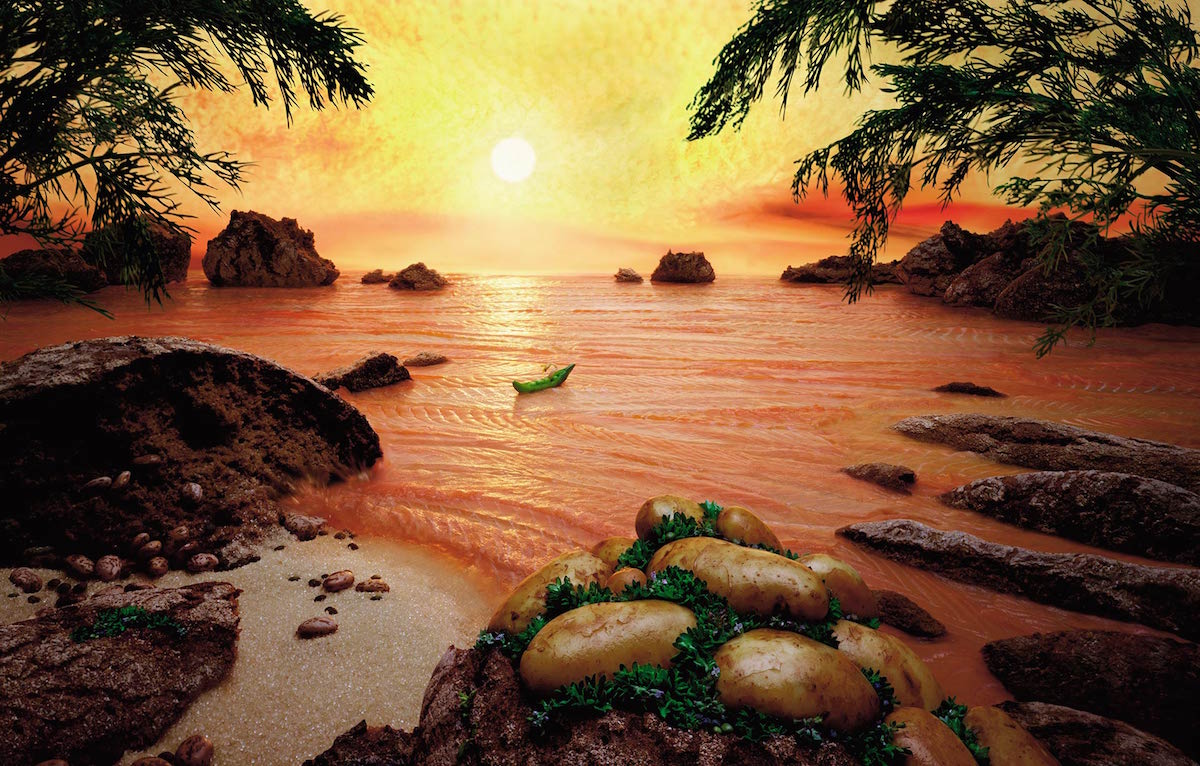
“Smoked Salmon Sea”
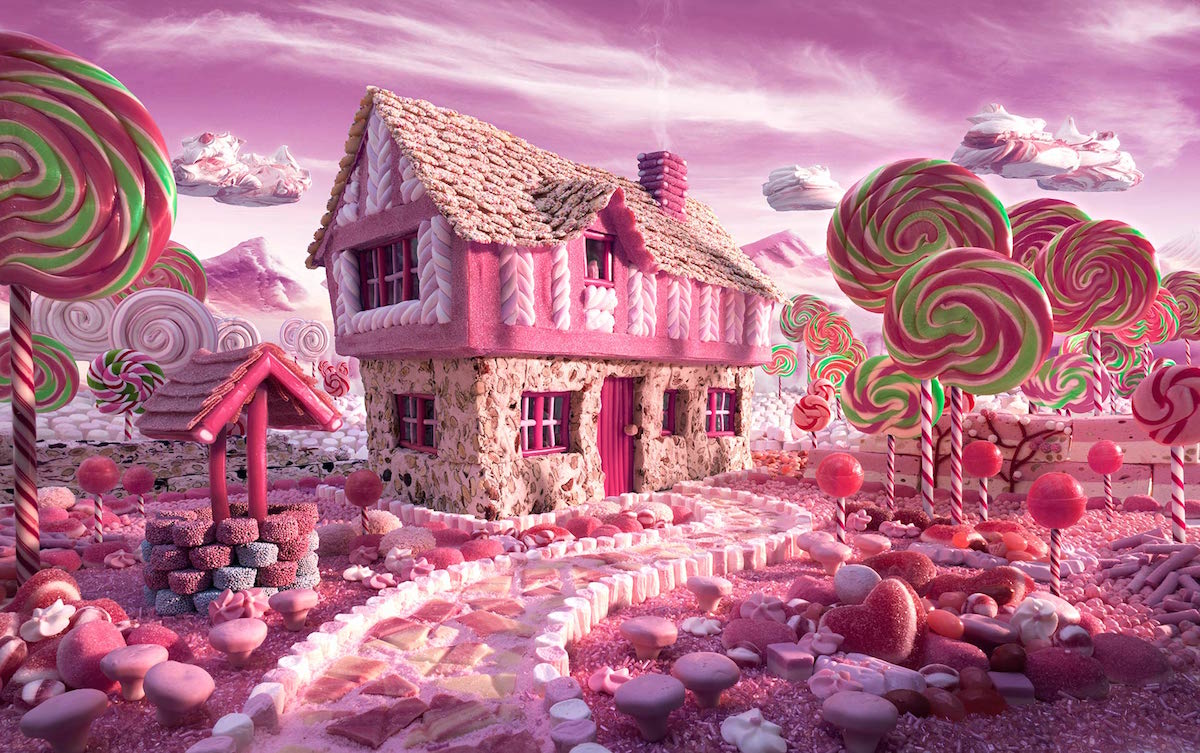
“Candy Cottage”
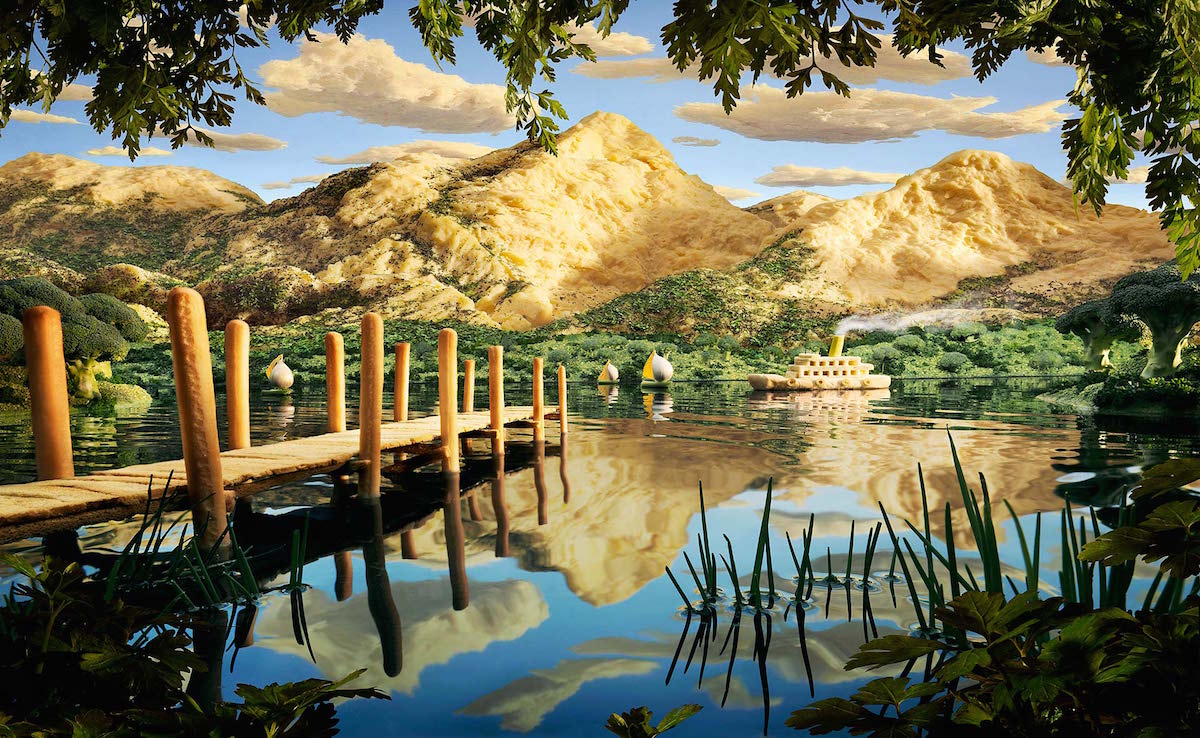
“Cheesescape”
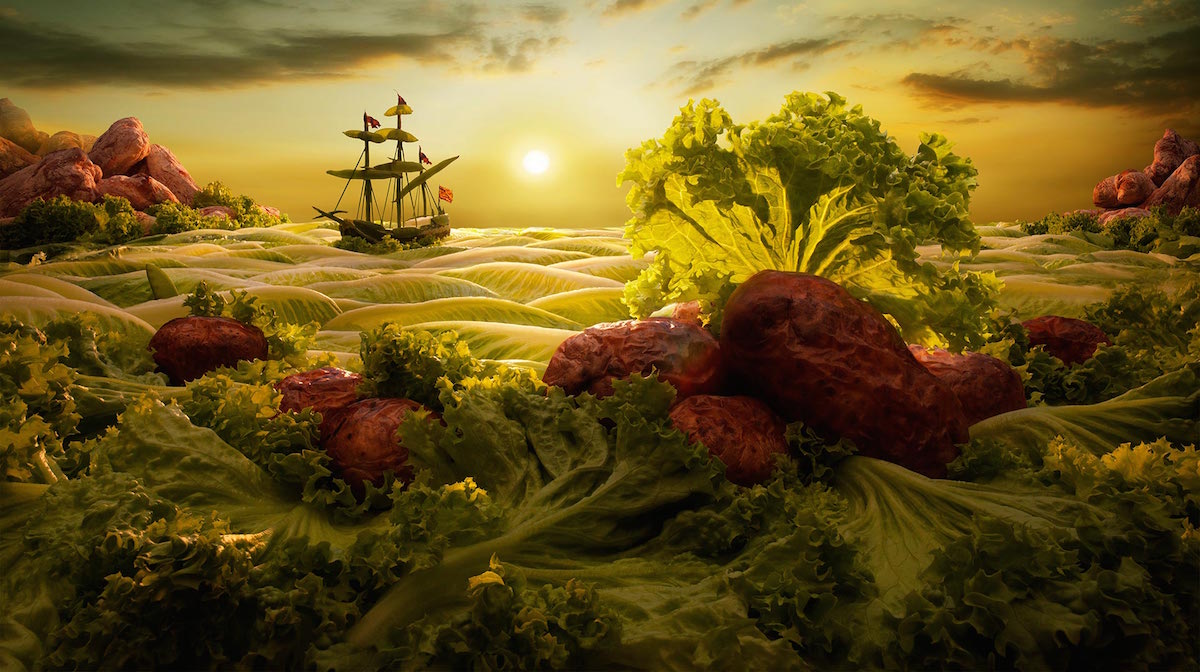
“Lettuce Seascape”
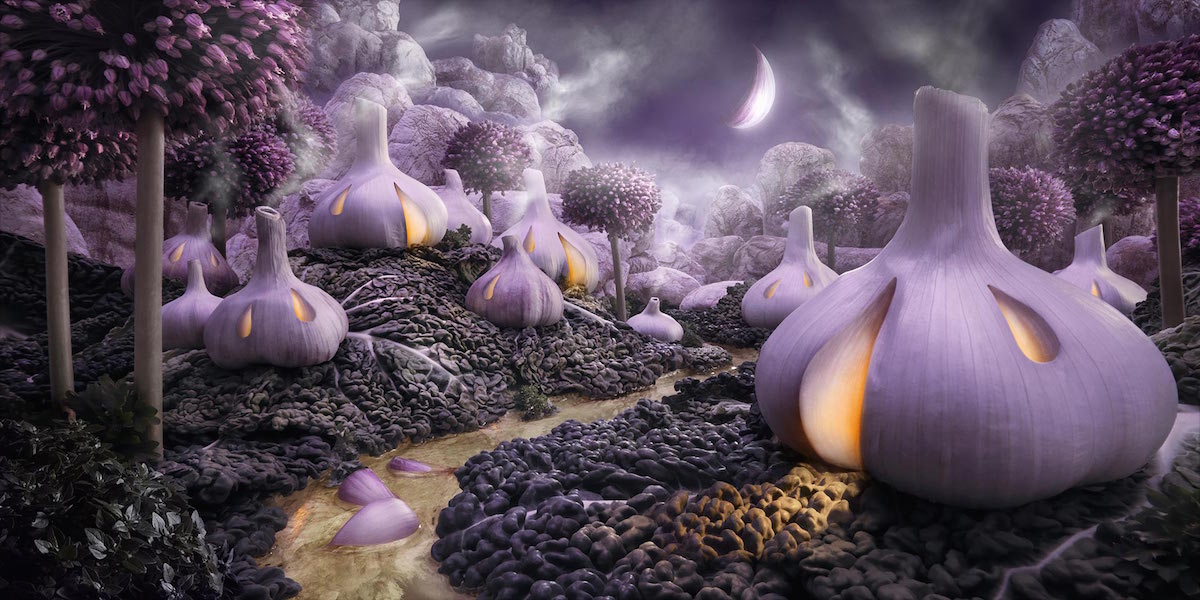
“Garlicshire”
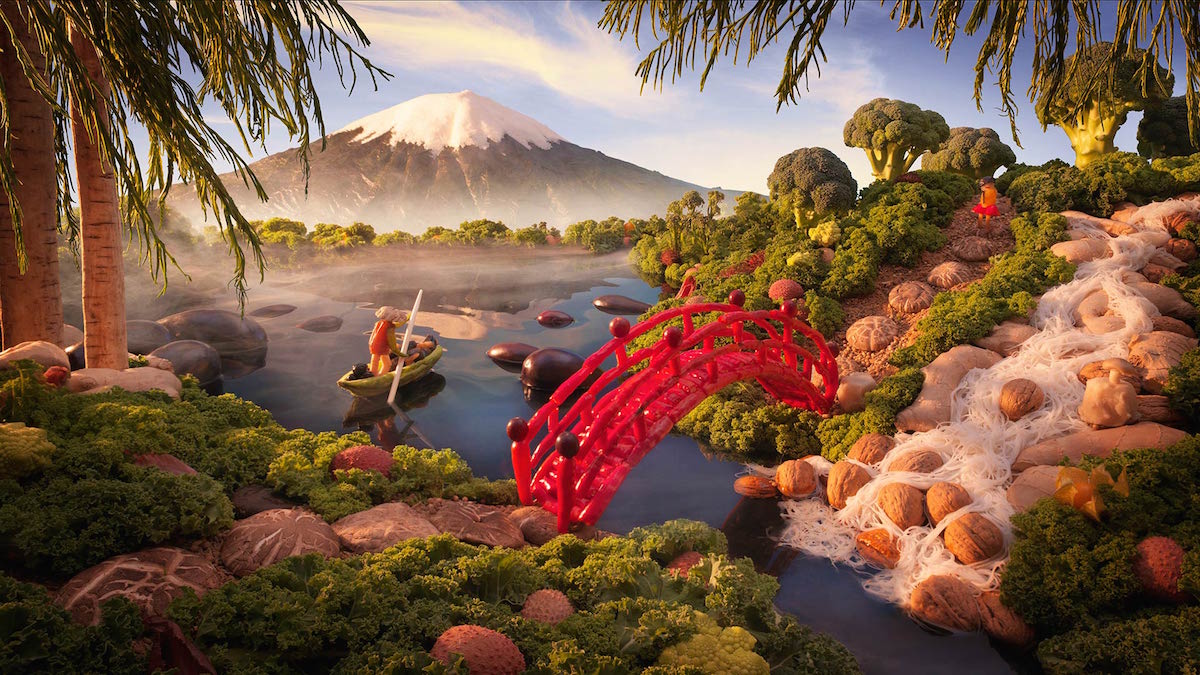
“Fujiscape”
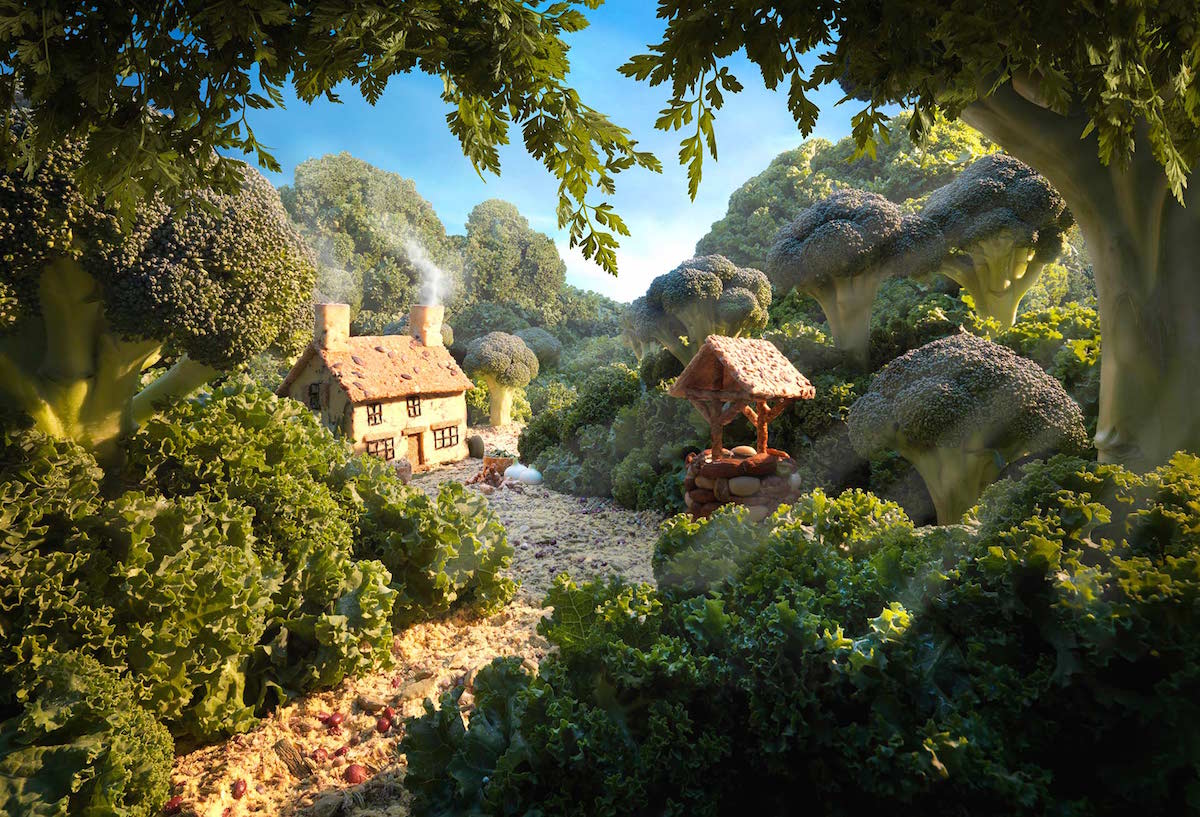
“Stilton Cottage”
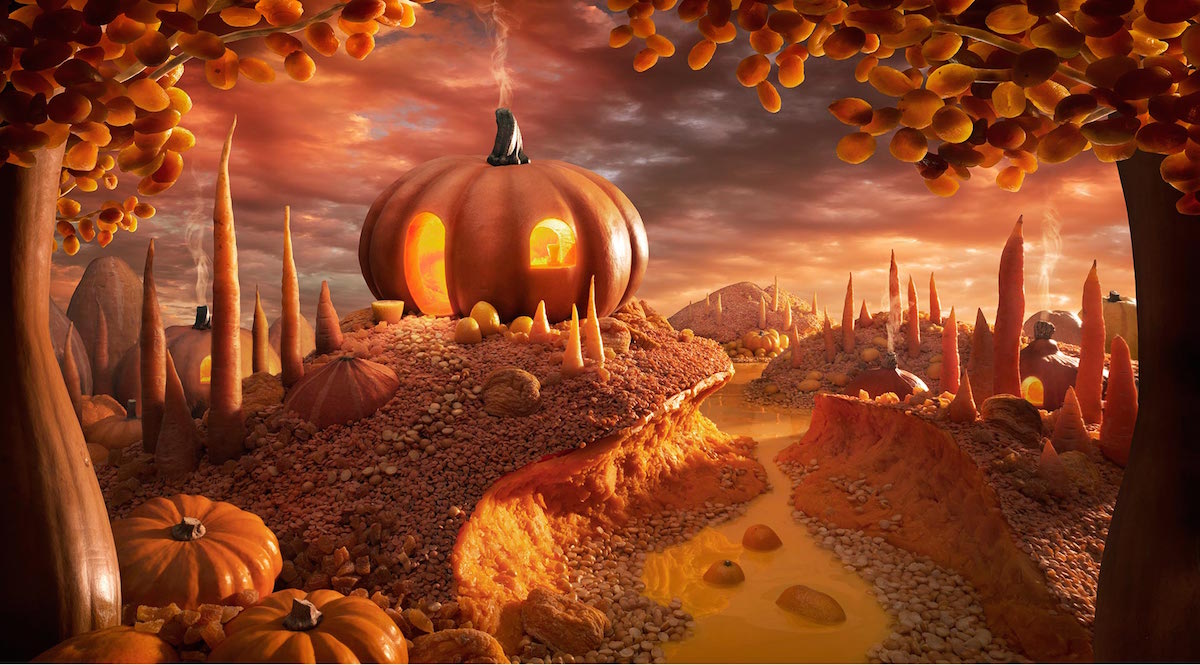
“Pumpkin Paradise”
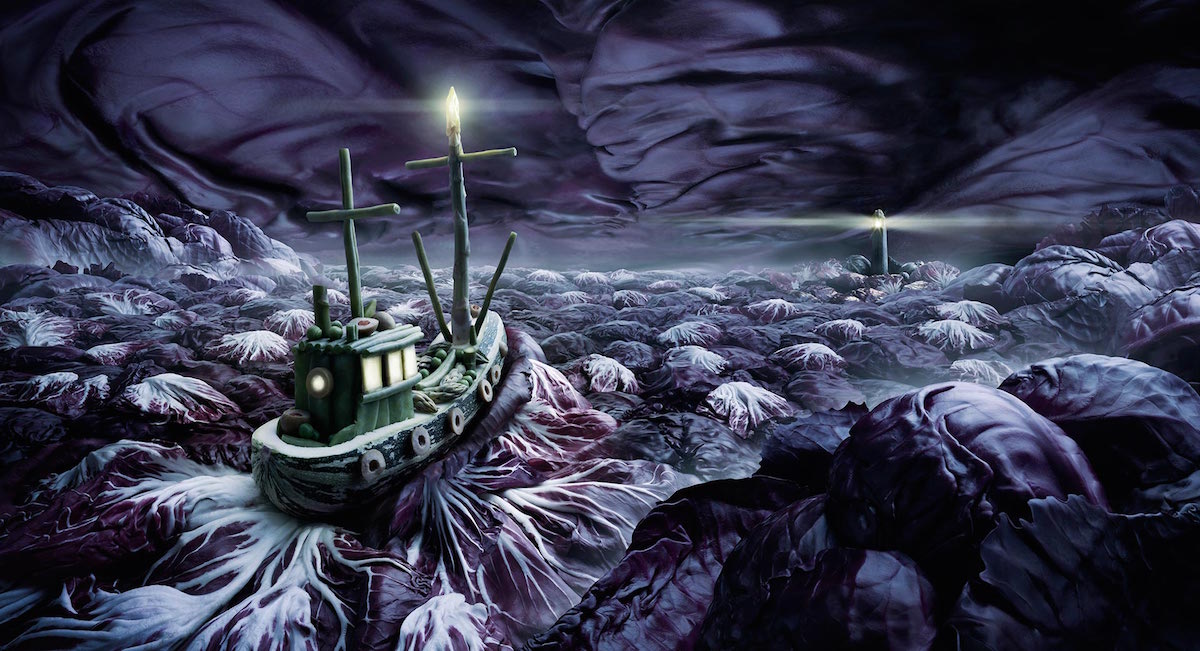
“Cabbage Sea”
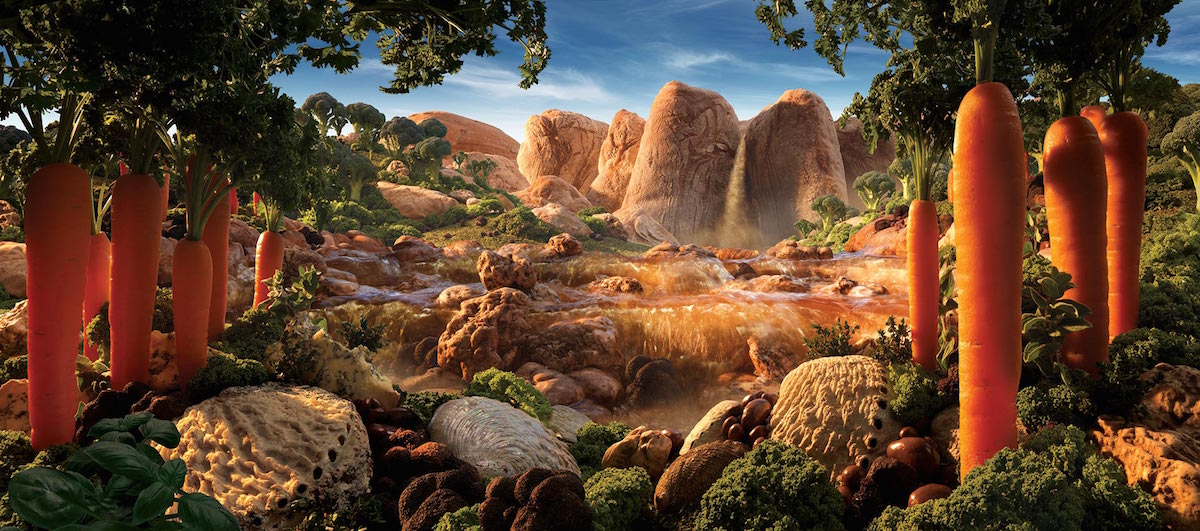
“Truffle Falls”
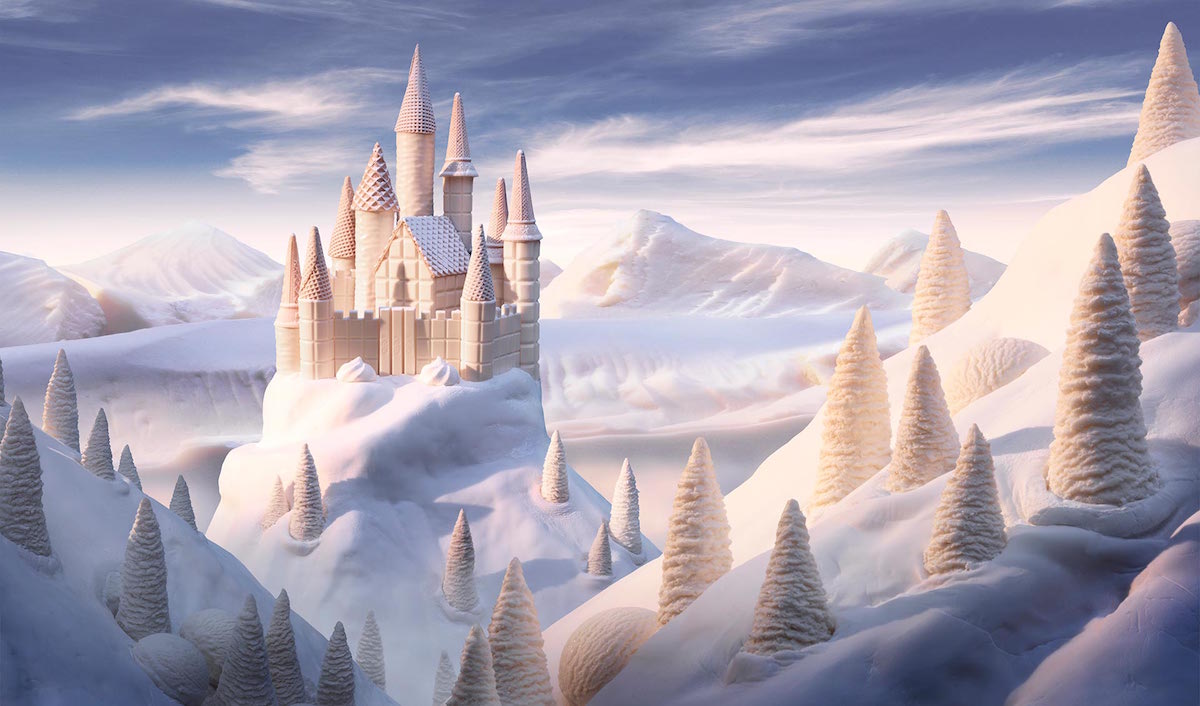
“White Chocolate Castle”
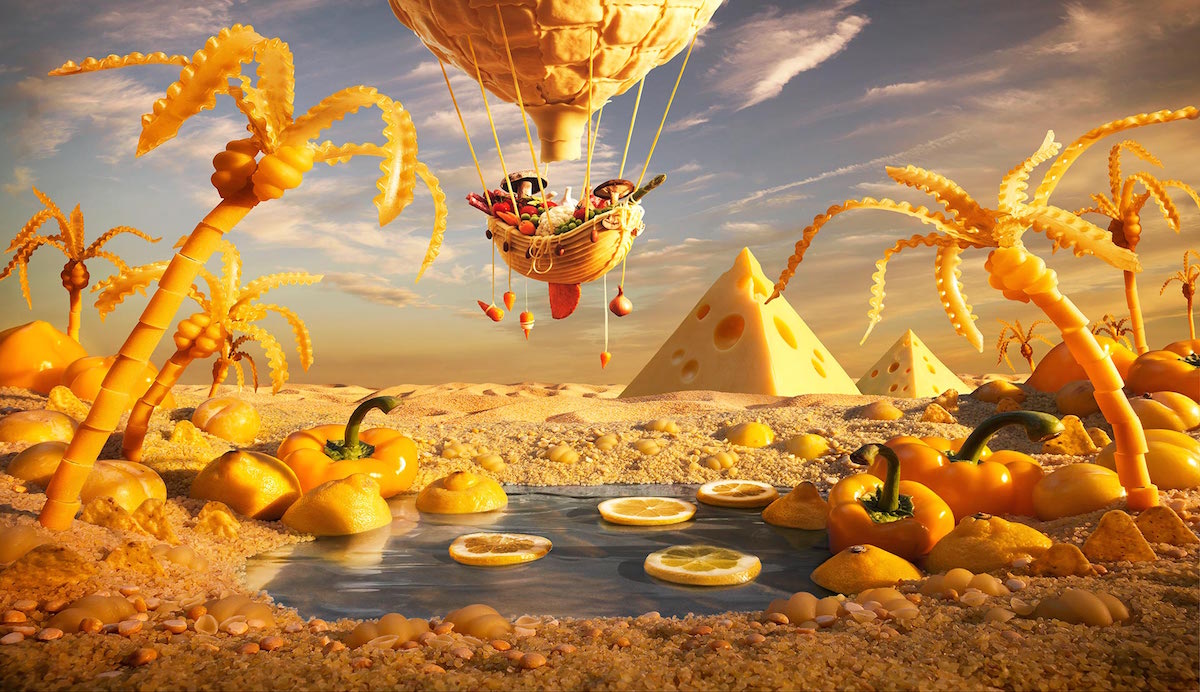
“Yellow Oasis”
